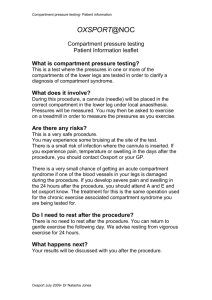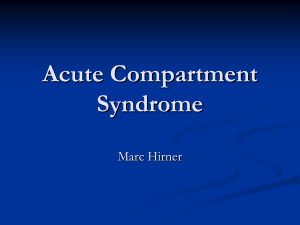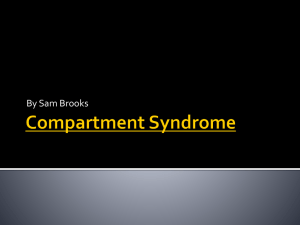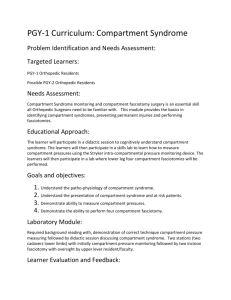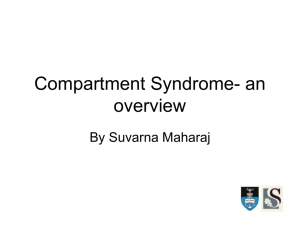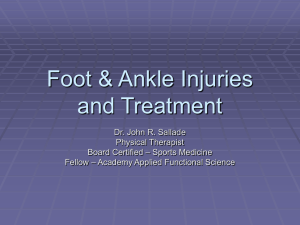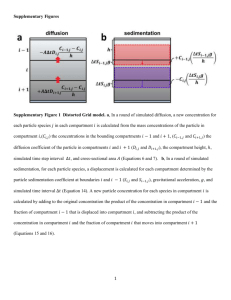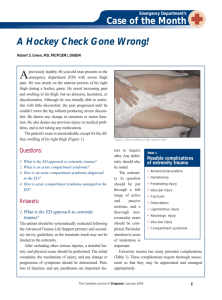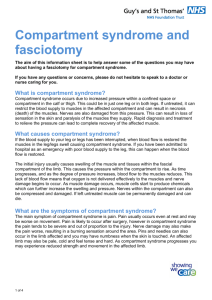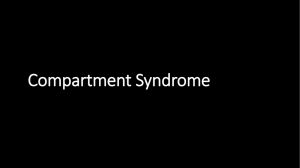COMPARTMENT SYNDROME
advertisement
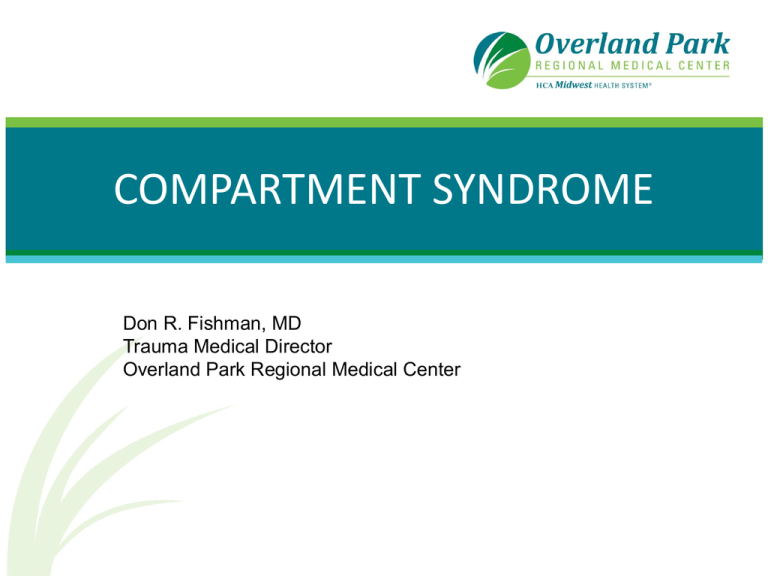
COMPARTMENT SYNDROME Don R. Fishman, MD Trauma Medical Director Overland Park Regional Medical Center COMPARTMENT SYNDROME A condition in which increased pressure within a limited space compromises circulation and function of the tissues within that space. (Matsen, 1980) COMPARTMENT SYNDROME Lower leg Thigh Abdomen Arm Eye Skull COMPARTMENT SYNDROME Pathophysiology normal compartment pressure = normal venous pressure (8-15 mmHg) Anything that raises the pressure in the limited space COMPARTMENT SYNDROME Causes fractures crush vascular injury burns exercise volume loading bleeding/hematomas dvt casts snakebite COMPARTMENT SYNDROME Signs and Symptoms The 4 “P”s pain pallor pulselessness paralysis COMPARTMENT SYNDROME Compartment syndromes can be hard to diagnose on clinical exam alone. A high clinical suspicion is necessary. mechanism of injury injuries resuscitation volume space in question COMPARTMENT SYNDROME Physical exam is unreliable When in question, measure the pressure! different devices and techniques manometry Stryker bladder pressure ICP monitor tonometry COMPARTMENT SYNDROME Prevention maintain vascular inflow appropriate resuscitation elevation treat hypotension COMPARTMENT SYNDROME Prevention paracentesis enema gastric decompression COMPARTMENT SYNDROME Treatment Muscle (including abdomen)compartments fasciotomy Eye lateral canthotomy Skull osmotic diuresis hyperventilation evacuation w/wo craniectomy COMPARTMENT SYNDROME Pitfalls relying on PE delayed fasciotomy with clinical evidence inadequate fasciotomy extremity elevation relying on pulse oximetry or presence of pulses COMPARTMENT SYNDROME Rhabdomyolysis Due to injury/death of muscle tissue Myoglobin release Local effects tissue edema Systemic effects acute kidney injury COMPARTMENT SYNDROME Rhabdomyolysis Clinical suspicion measure CPK (5000) check urine color measure myoglobin level be aware of hyperkalemia COMPARTMENT SYNDROME Rhabdomyolysis fasciotomy debridement maintain urine output >100cc/hr osmotic diuresis ? Alkalinization of urine treat hyperkalemia COMPARTMENT SYNDROME Rhabdomyolysis Pitfalls inadequate suspicion/late recognition inadequate debridement furosemide dehydration
